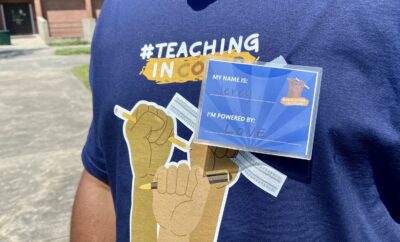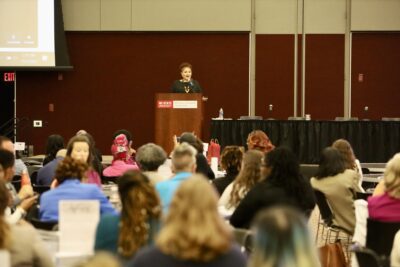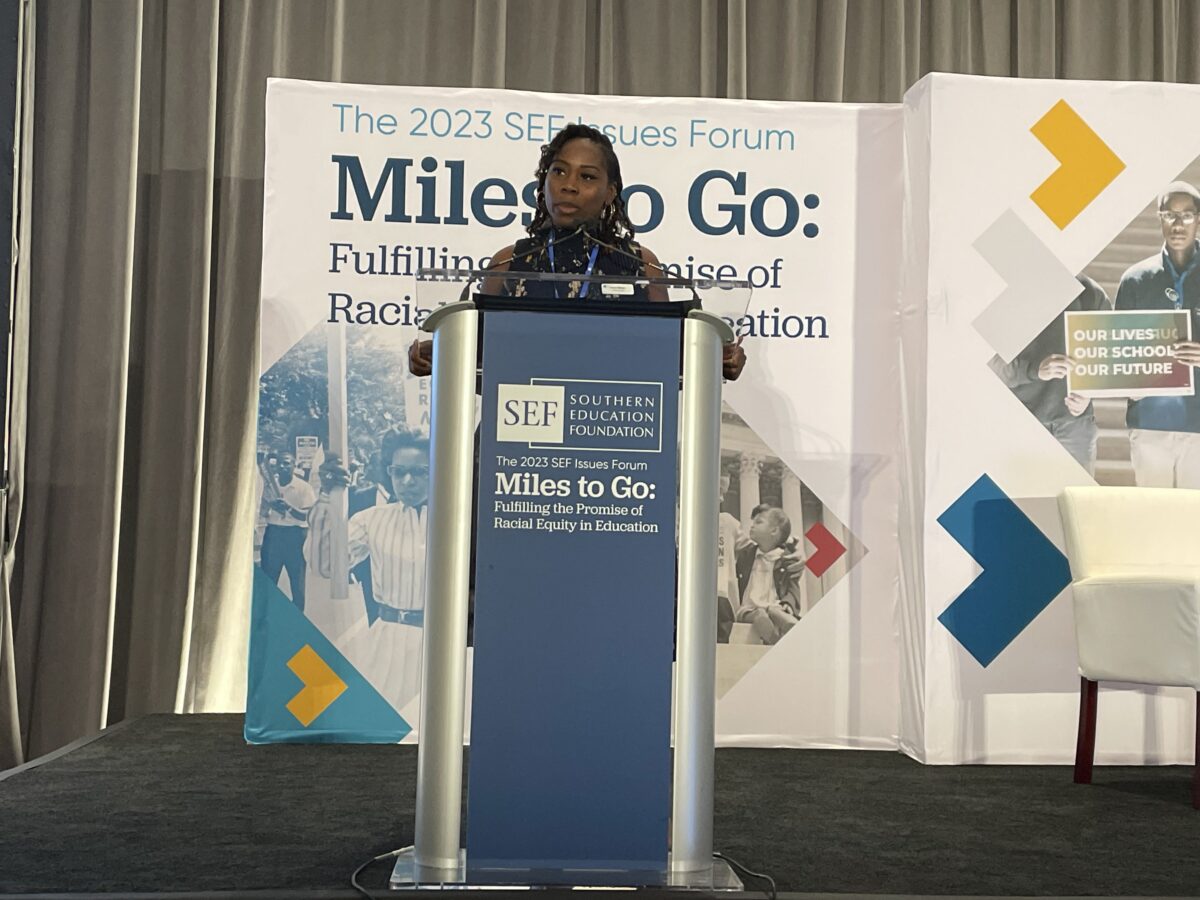

|
|
Equity ensures that “Every student gets what they need, when needed, in the ways that they need it, and where they need it,” U.S. Deputy Secretary of Education Cindy Marten said. “That doesn’t always happen,” she said and shared a story from her time as a principal in San Diego.
She described one of her former students as a little boy who the whole school loved. On the first day of his second grade year, Marten unveiled to the student an art project of his that she kept from the previous year. The drawing was significant because it depicted a “big dream” that they both shared to meet President Barack Obama. “Let’s hold on to each other’s dreams,” she told him.
The ache in Marten’s retelling swept over all who listened as she recalled that, just four days into the school year, her student passed away.
“He can’t die. His dream didn’t come true. You can’t die before your dreams come true,” she said.
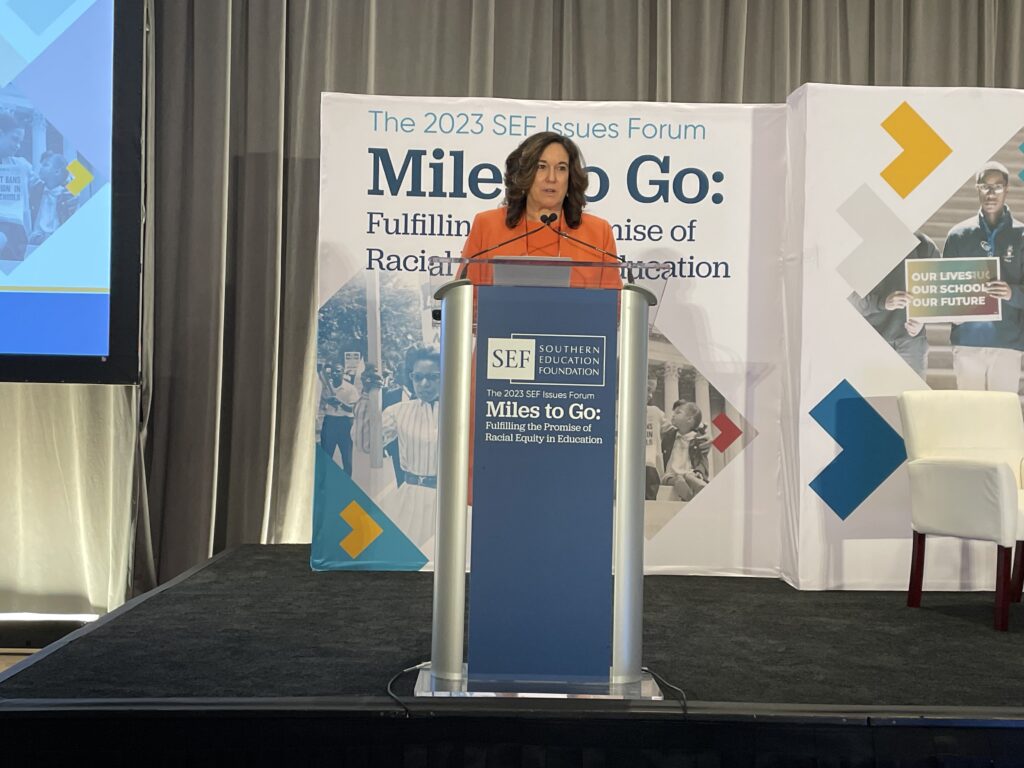

The student was born with sickle cell anemia, a disease that he was tested for at birth in alignment with California screening procedures, especially given the high risk for African Americans. However, Marten said, the student’s family experienced homelessness at the time of his birth, thus, when test results came back later, there was no address to which to send them.
“This is what we’re talking about when we’re talking about equity,” Marten expressed.
During that period, Marten’s school was in the process of building a school-based health and wellness center. She said it would allow students to have a “health home” to receive free medical services and collect their data from birth to 18 years old.
Marten said it could’ve been an address where her student’s sickle cell screening results could have been sent.
“Equity is that each and every student gets what they need,” she said. “We didn’t have what he needed on the day he was born.”
The Southern Education Foundation Forum
These were the opening remarks of the Southern Education Foundation (SEF) 2023 Issues Forum focused on “Fulfilling the Promise of Racial Equity in Education.” Held in Charlotte, the conference brought together educational leaders and stakeholders to address issues including inequitable resources and opportunities for students, racial segregation, early childhood education expansion, and more. Despite the work and progress documented over the past century, SEF recognizes that there are many “Miles to Go” in the push for equity in education.
Southern Education Foundation is a 155-year-old education and civil rights organization. Based in Atlanta, they work to “improve education in 17 states and across the nation, with an emphasis on Black students and students from low-income families.” The organization has been pivotal in coalition building and advocacy for quality public education.
The kickoff event to the Issues Forum was an opportunity for celebration and reflection on that history and more. Throughout the forum, attendees reflected on the landmark Brown v. Board of Education court case and the impact of school segregation at large.
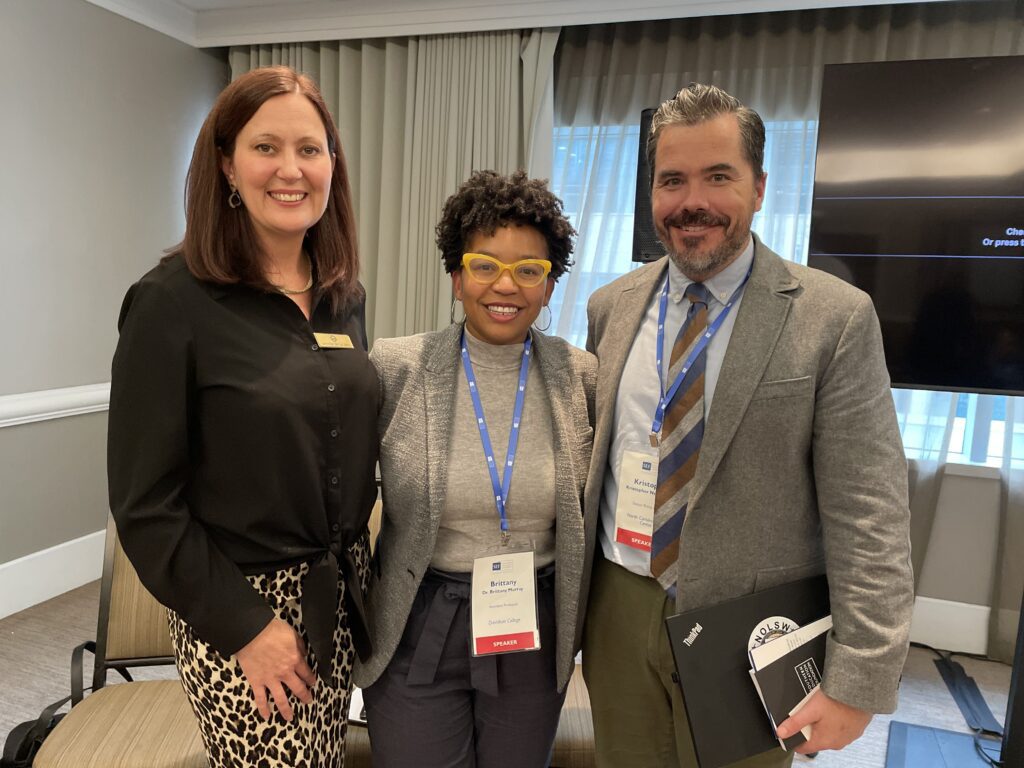

On the opening night, Dorothy Counts-Scoggins shared her lived experience as one of the first students to desegregate Charlotte schools in 1957. The same panel discussion recognized the impact of lawyer and civil rights leader Julius Chambers, the early 1970s Swann v. Mecklenburg County Board of Education case, and other influential leaders who contributed to the desegregation of public schools in the Southern states.
Over the days that followed, 200-plus leaders progressed through various panel discussions and breakout presentations. Topics included exploring strategies, policy, and advocacy for equity in early childhood education; addressing opportunity gaps and funding disparities in K-12 schools; and the future of postsecondary education in light of the legacy of segregation in institutions in the Deep South.
Rochelle Wilcox, CEO of Wilcox Academy of Early Learning and co-founder of For Providers By Providers spoke to the importance of supporting early learning providers through community and collective action.
“It’s the first 1,000 days that are the most important for early learners,” Wilcox stated.
Wilcox is a part of a movement that she says has now grown to over 300 early learning providers across the state of Louisiana. This consists of weekly meetings focused on leadership development and business acumen, in addition to pushing for public policy around early care and education such as raising the rates in the child care system. These efforts contributed to securing approximately $21 million annually for early childhood education in New Orleans through a property tax measure aimed at creating 1,000 or more early childhood seats for low-income children.


During the conference, SEF also issued a press release regarding the U.S. Department of Education’s latest Civil Rights Data Collection report. Below are data points that SEF highlighted from a survey of school districts during the 2020-21 school year:
- About 1.7 million students attended schools with a sworn law enforcement officer but no counselor on campus.
- Black boys were nearly twice as likely to see out-of-school suspension than white boys. About 18% of Black boys were suspended during the year, and 18% of Black male students were expelled.
- Black students represented 15% of students in high school but only 10% of students in Advanced Placement (AP) computer science classes, 8% of students in AP science, and 6% of students in AP mathematics, POLITICO reported.
“The evidence is clear that Black students still do not have the same educational opportunities as their peers,” SEF President and CEO Raymond Pierce said. “The good news is we can solve this problem through greater and more equitable funding for schools, more access to early childhood education, and focusing on public schools rather than sending funds to private schools through vouchers.”
Fulfilling the big dream
As superintendent, Deputy Secretary Marten was invited to the White House for an arts education event held by former First Lady Michelle Obama. Marten brought her late student’s big dream poster. Wishful thinking transformed into a fortunate surprise when President Obama joined their group unanticipatedly.
Marten held up the image for him, believing that it was the moment for both her and her student to meet the president. That experience, along with the completion of the health center, serves as just one reminder that “We can deliver on the hope and the promise of education,” Marten said. “We can give our students what they need. We know how to do that. So if we’re not delivering in every part of the country, that’s on us.”
In the words of Dr. Kenita Williams, chief operating officer at SEF, “This is still a long journey toward achieving education justice, and we still have many miles to go.”




